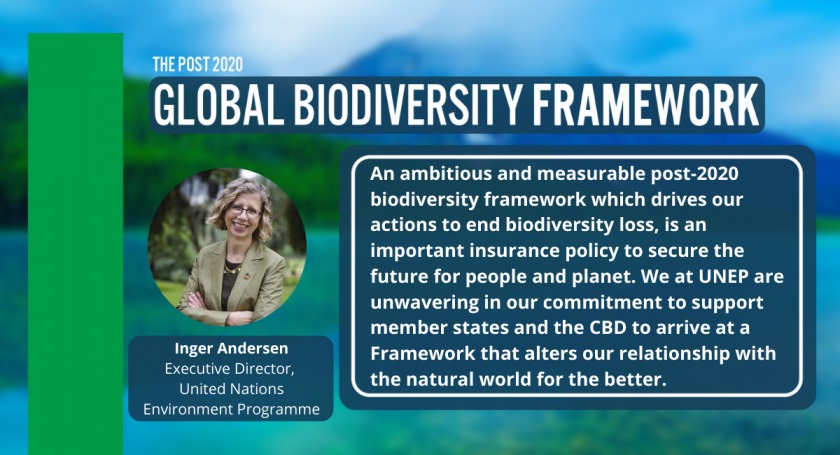Staff of UNEP writes:
The United Nations Biodiversity Conference, referred to as COP15, starts this week in Montreal, with governments from around the world coming together to agree, amongst other things, on a new set of goals and targets that will guide global action on nature through 2030.
While it sounds similar to COP27, the recent UN Climate Conference held in Sharm El-Sheikh, the two meetings focus on different but related issues. COP27 addressed action under the UN Framework Convention on Climate Change to reduce greenhouse gas emissions and to adapt to these changes. COP15 focuses on the living world through the Convention on Biological Diversity (CBD) a treaty adopted for the conservation and sustainable use of biological diversity and related issues.
While the biodiversity COP – short for Conference of the Parties – takes place every two years, this year is particularly important as a new global biodiversity framework is set to be adopted. The Post-2020 Global Biodiversity Framework will be the first global framework on biodiversity adopted since the Aichi Biodiversity Targets in 2010.

Why is this year’s conference so important?
Acting to address biodiversity loss has never been more urgent. The planet is experiencing a dangerous decline in nature as a result of human activity. It is experiencing its largest loss of life since the dinosaurs. One million plant and animal species are now threatened with extinction.
Humanity’s existence relies on having clean air, food and a habitable climate, all of which are regulated by the natural world. A healthy planet is also a precursor to resilient economies. More than half of global GDP – equal to $41.7 trillion – is reliant on healthy ecosystems.
Billions of people in developed and developing nations benefit daily from nature and the benefits it provides including food, energy, materials, medicine, recreation and many other vital contributions to human well-being.
Healthy ecosystems are also critical to meeting the Sustainable Development Goals and limiting global warming to 1.5°C, yet climate change is likely to become one of the biggest drivers of biodiversity loss by the end of the century.
COP15 aims to achieve an historic agreement to halt and reverse nature loss, on par with the 2015 Paris Climate Agreement. What is adopted in Montreal will essentially be a global blueprint to save the planet’s dwindling biodiversity.
What are the key issues?
- The stakes could not be higher in Montreal. Many issues will be negotiated. The draft framework includes over 20 targets from proposals to reduce pesticide use, address invasive species, reform or eliminate subsidies that are harmful to the environment and increase financing for nature from both public and private sources.
- The framework will need to be both ambitious and actionable if real progress is to be made and it must address the five key direct drivers of nature loss: changing use of sea and land; overexploitation of organisms; climate change; pollution; and invasive non-native species, and their underlying causes such as unsustainable consumption and production.
- Fragmentation and land-use changes – driven by agriculture and urban sprawl – are driving 80 per cent of biodiversity loss in many areas, which is why it is vital this is addressed.
- It is also important that solutions reached at COP15 encompass all of society, from the financial sector and business as well as governments, NGOs and civil society. The participation of indigenous peoples and local communities in decision-making processes related to nature, and recognition of their rights to land, is especially important.
- Agreements will need to be reached on finance, including how much wealthy nations will support developing countries to finance biodiversity conservation, as well as on access and benefit sharing, specifically when it comes to the use of data derived from genetic resources.
- Access and benefit-sharing refers to the way genetic resources may be accessed and how the benefits as a result of this use are shared between users (such as biotech companies) and providers (countries and communities rich in biodiversity). This issue is central to ensuring that all are able to benefit from nature’s resources, not just a limited number of corporations particularly in the Global North.
Given the crucial role healthy ecosystems play in every aspect of humanity, it is vital that agreement is reached in Montreal and the decline in our natural world is halted.
Read more: What to expect at this year’s UN biodiversity conference: COP15
 Greenroofs.comConnecting the Planet + Living Architecture
Greenroofs.comConnecting the Planet + Living Architecture









